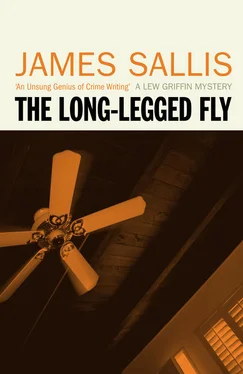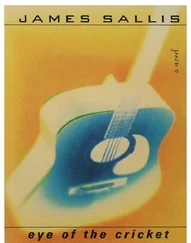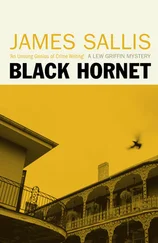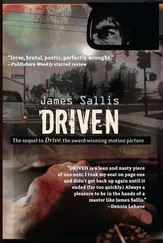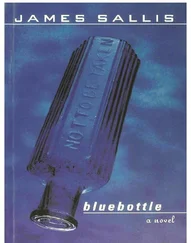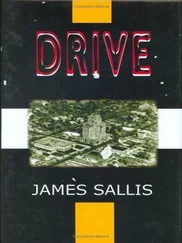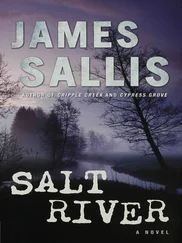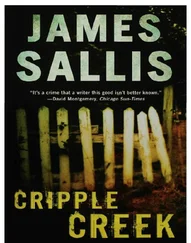James Sallis - The Long-Legged Fly
Здесь есть возможность читать онлайн «James Sallis - The Long-Legged Fly» весь текст электронной книги совершенно бесплатно (целиком полную версию без сокращений). В некоторых случаях можно слушать аудио, скачать через торрент в формате fb2 и присутствует краткое содержание. Жанр: Криминальный детектив, на английском языке. Описание произведения, (предисловие) а так же отзывы посетителей доступны на портале библиотеки ЛибКат.
- Название:The Long-Legged Fly
- Автор:
- Жанр:
- Год:неизвестен
- ISBN:нет данных
- Рейтинг книги:5 / 5. Голосов: 1
-
Избранное:Добавить в избранное
- Отзывы:
-
Ваша оценка:
- 100
- 1
- 2
- 3
- 4
- 5
The Long-Legged Fly: краткое содержание, описание и аннотация
Предлагаем к чтению аннотацию, описание, краткое содержание или предисловие (зависит от того, что написал сам автор книги «The Long-Legged Fly»). Если вы не нашли необходимую информацию о книге — напишите в комментариях, мы постараемся отыскать её.
The Long-Legged Fly — читать онлайн бесплатно полную книгу (весь текст) целиком
Ниже представлен текст книги, разбитый по страницам. Система сохранения места последней прочитанной страницы, позволяет с удобством читать онлайн бесплатно книгу «The Long-Legged Fly», без необходимости каждый раз заново искать на чём Вы остановились. Поставьте закладку, и сможете в любой момент перейти на страницу, на которой закончили чтение.
Интервал:
Закладка:
Anyhow, one day Jerry’s dad came home from the shop stone-sober and said he was going away for a while to think things over. He stuffed some jeans and T-shirts and a few flannels into paper bags. On the kitchen table he left a stack of money, payment he’d received from selling his shop and (apparently) money that he’d hoarded all those years when everyone was saying he’d spend his last cent on drink. It was (Jerry told me all this much later) an amazing sum of money. And that was the last time he saw his father.
His father moved into a cave out by the lake and lived there for years, but Jerry would never go see him. He lived off what he could forage from the woods and fish caught from the lake, never again coming into town. A lot of people said he had finally cracked up. Others went to him for advice.
In my junior year of high school I discovered books: Thoreau, then rather quickly people like Gandhi, Tolstoy, Twain, Faulkner. Devoured whole biographies of them and their own books the way other kids did candy or sandwiches, spent days hunched over their letters and diaries in that drifting Delta dust, my spine an oversize question mark.
Hobbes, for instance, with his paradox of power. The more power one had, Hobbes said, the more power it took to maintain that power. Only when you were truly a nobody, when you had nothing anyone could possibly want, were you free to be left alone and to go on about the tiny business of your life undisturbed. I think Jerry’s dad may have been aiming at something like that. And my people, Negroes, it came to me, were the ultimate Hobbesians.
None of that’s very close to the truth, I suspect; part of it’s what my youthful mind made (and wanted to make) of the scaffolding of facts, the rest of it what memory (forever more poet than reporter) has pushed into place. Probably Jerry’s dad was just another drunk who went on one final, lifelong binge and dropped out (as they began saying a few years later) and finally drowned on his own vomit or in the lake’s slimy, sulphurous water. Anyhow, in college I used that story for a couple of English and history themes, and for my term paper in philosophy, and always got A’s.
I don’t know what time I at last fell asleep, but it seemed I had just done so when the phone rang.
“I’m so rr y to wake you, but I was af r aid othe r wise you might wo rr y.”
I looked at the clock. It was a little before seven. Outside, birds were tuning up.
“I’m going to stay ove r a bit, if that’s all r ight. We’ve had a bad night and now th r ee call-ins, all R N’s. I just can’t leave the gi r ls with all this. A r e you going in today?”
“Maybe not. Had a good day yesterday. I’ll see.”
And went immediately back to sleep, waking only when Vicky climbed into bed beside me.
“I’m so ve r y ti r ed,” she said. Then: “But not that ti r ed.”
Afterwards I looked at the clock again-a bit afternoon-and eased myself out of bed. Vicky turned onto her left side and mumbled. I heated water, ground some beans, shaved, then came back, dressed, and took the coffee out onto the balcony.
People swirled and plunged toward their work like water rushing down a drain. How many lived the same life for forty years: up at six, shower at six-fifteen, breakfast, second coffee, seeing kids off to school, on the interstate or St. Charles or bus or trolley by eight, at the office or store by nine? Then home by six, a drink or two, dinner, TV or games with the kids maybe, out to the mall on Mondays or Thursdays, a movie or ball game Sunday afternoon?
I had a son. It had been a long time since I’d seen him, since I’d wanted to see him. I wanted to see him now. But then Walsh called.
“Lew? Didn’t think I’d catch you in. I was just talking to Bill Sansom. Jimmi Smith’s been hurt, he’s pretty bad. Sansom said you’d want to know about it.”
“What happened, Don?”
“He was jumped by a gang of some kind, apparently. Beat him with something, chains or tire irons, maybe. Stabbed him a couple of times. Got one lung.”
“Any idea why?”
“You know as well as I do that there doesn’t have to be a reason. Probably isn’t. Just he was there.”
Don turned away from the phone, spoke to someone, listened, spoke again.
“Gotta go, Lew. Jimmi just arrested. They’re losing him.”
Chapter Six
Thing was, you could tell the guy cared. Thirty years riding herd on this zoo, living in muck and mire like a catfish, and he could still be concerned about a small-time sex offender doing his damndest to make good.
When I got to the hospital-Don hadn’t told me where he was and I’d had to call around-he met me in the lobby. “Let’s go get drunk, Lew,” he said. So we did.
It had been a long time for both of us. We started at Kolb’s with dark German beer and drank our way purposefully into the Quarter. We were sober and depressed for hours, then suddenly drunk and afloat. By the time the suit people began their five o’clock hegiras homeward we were stewing in our own juices in the far corner of a bar on Esplanade, doe-eyed bartender and teenage transvestite our sole compatriots.
“You gon’ be able t’drive, Lew?” Walsh said.
“Sure. But if I drive, you gotta find the car.”
“S’only fair.”
But he couldn’t and I couldn’t either, and after an hour or so of trying we walked back to Cafe du Monde. Stuffed doughnuts into our mouths and washed them down with chicory coffee until the world slowed, shuddered and stood still again.
“It’s still by the hospital, in the lot,” Don said. “The car.”
“Right. One more for the road?”
He ordered another coffee for each of us, and I went inside to phone Vicky.
By this time it was almost ten, and she was getting ready for work. “I was wo rr ied, Lew,” she said. I briefly told her what had happened and said I’d be home soon. “Be ca r eful, Lew,” she said, “I’ll leave some food on the stove fo r you.”
What she left was sweet potatoes, grits and pork chops, all obviously ready some hours ago-food I’d grown up eating, wholly alien to her. I wondered if she had found a cookbook somewhere ( were there cookbooks for this stuff?) or talked to my mom. Whatever, she’d taken some trouble. I tried to get her at the hospital and was told she was tending to an emergency.
I was almost asleep when she called back.
“I’ve got two minutes between the elevato r -case stabbing and the MI on its way f r om F r e r et,” she told me.
“Soul food?” I said. “What’s that in French?”
“It’s ou r annive r sa r y, Lew. I wanted to do something a bit special.”
“You are special, Vicky. You don’t have to do anything special.”
“The MI’s here now, Lew; I have to go. I’ll see you in the mo r ning. Pe r haps we could have b r eakfast out; I’d like that.”
“I would too.”
Quiet then; the shush of the air-conditioner, the humming in wires. Far off a radio plays early rock and roll. I try to juggle my memories and what I am, and the two do not get along. They come together at the rim of a mountain, circling one another, snarling, flashing teeth. There are dark clouds and lightning to the south. Now it is light-it could be seven, or eleven-and Vicky is beside me.
We missed breakfast. Sometime in early afternoon the phone gradually penetrated my sleep but whoever it was didn’t stay around long enough for me to answer. I turned on the answering machine and went back to bed. At five or so we roused, showered, and read the Times-Picayune over cups of cappuccino at a neighborhood Italian restaurant. There wasn’t much in the paper; the real day’s news came from Vicky.
Читать дальшеИнтервал:
Закладка:
Похожие книги на «The Long-Legged Fly»
Представляем Вашему вниманию похожие книги на «The Long-Legged Fly» списком для выбора. Мы отобрали схожую по названию и смыслу литературу в надежде предоставить читателям больше вариантов отыскать новые, интересные, ещё непрочитанные произведения.
Обсуждение, отзывы о книге «The Long-Legged Fly» и просто собственные мнения читателей. Оставьте ваши комментарии, напишите, что Вы думаете о произведении, его смысле или главных героях. Укажите что конкретно понравилось, а что нет, и почему Вы так считаете.
